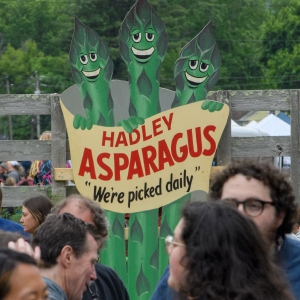Controversial Quabbin rattlesnake restoration plan suspended
| Published: 04-20-2017 8:18 AM |
BELCHERTOWN — The state’s plan to release timber rattlesnakes on an island in the Quabbin Reservoir is on hold indefinitely following a Fisheries and Wildlife Board vote Tuesday morning.
This comes as welcome news for local residents and legislators who have been lobbying against the initiative for more than a year. The Massachusetts Division of Fisheries and Wildlife had planned to breed and re-introduce 150 snakes to the reservoir’s Mount Zion Island. The snakes are approaching extinction and the state lists them as endangered due to traditional persecution and loss of habitat.
But some remain skeptical of the plan.
Athol resident Anthony Brighenti, who sits on the North Quabbin Fishermen’s Association and the Quabbin Watershed Advisory Committee, said the plan had him concerned about public safety.
“We felt that we didn’t want ever, ever to get bitten by a timber rattler on the Quabbin Reservoir,” he said. “I think it was slim chance, but slim is not 100 percent. And that could interfere with access to the Quabbin.”
Brighenti said he understands the need to preserve the species but believes this can be done by releasing snakes to habitats they already have in the Berkshires and in the Blue Hills.
“We also felt there should be some closer monitoring of the snakes in those locations,” he said.
Brighenti is also on the 14-member Rattlesnake Review Working Group established about a year ago after state Senate action. Sen. Eric P. Lesser, D-Longmeadow, introduced an amendment to put a one-year moratorium on the plan. The group met a handful of times and was supposed to offer recommendations to the state Fisheries and Wildlife Board about how the officials should manage the timber rattlesnakes in general.
Article continues after...
Yesterday's Most Read Articles
Brian Ferrarese, the chief of staff for state Sen. Anne M. Gobi, D-Spencer, said the working group’s fate is now up in the air.
“We don’t have that information yet. This just happened and I think everyone has to regroup and figure out what the future of the working group is,” he said. “We just haven’t had that conversation yet.”
Lesser, Gobi and state Rep. Susannah Whipps, R-Athol, are members of the working group.
When he introduced his amendment last year, Lesser said he did not dispute the science behind the Fisheries & Wildlife division’s plan, but objected to what he viewed as another example of the state making a decision without the opinion of people in central and western Massachusetts. His constituency includes Belchertown.
On Tuesday, Lesser said the plan’s indefinite suspension is gratifying because it puts his mind at ease regarding public safety and means the government respects the voice of the people.
“The bottom line is the public had a lot of concerns about this plan and (the Fisheries and Wildlife Board) listened to those concerns,” he said.
Gobi released a statement Tuesday expressing her happiness about the suspension.
“Preservation of endangered species is a major priority of mine and members of the Fisheries and Wildlife Board,” she said. “However, the Quabbin Reservoir is a vital resource, with a history of sacrifice. The decision to convene the Rattlesnake Working Group was an important measure to hear from area residents and to determine if this plan was the right one.
“In the end it wasn’t, but it was an honor to work with all the members of the working group to make this a completely transparent process.”
Gobi represents the 28 towns of the Worcester, Hampden, Hampshire and Middlesex district, which includes the Quabbin Reservoir and several of its surrounding communities. She is also the Senate chairwoman of the Joint Committee on Environment, Natural Resources, and Agriculture.
Not everyone, however, is pleased with the Fisheries and Wildlife Board’s vote.
Melissa Amarello, a founder and director of education at Tuscon, Ariz.-based Advocates for Snake Preservation (ASP), a nonprofit organization dedicated to improving public perception of snakes, said she was disappointed to hear the news Wednesday morning.
“This is a pretty clear example of conservation and preservation being guided by fear and politics, rather than science,” she said. “Snakes are feared. A lot of people don’t like them.”
ASP formed a coalition with organizations including the Athol Bird and Nature Club and the Mount Grace Land Conservation Trust.
Amarello has previously said snakes are stigmatized reptiles feared by people who don’t understand them.
She said the restoration plan is sound and based in science, stating timber rattlesnakes play a vital role in their ecosystem, most notably by eating small mammals that can carry diseases, like Lyme disease, that can harm humans.
Amarello also said the Quabbin Reservoir’s rock structure and vegetation mimic the habitat of timber rattlesnakes in other places.

 New HCC president reflects on journey: Timmons sees his own struggles and arc in students’ paths
New HCC president reflects on journey: Timmons sees his own struggles and arc in students’ paths South Hadley man fatally shot in attempted robbery
South Hadley man fatally shot in attempted robbery Historic murals restored at Victory Theatre in Holyoke
Historic murals restored at Victory Theatre in Holyoke Boards balk at limiting use of Hadley Town Common
Boards balk at limiting use of Hadley Town Common
